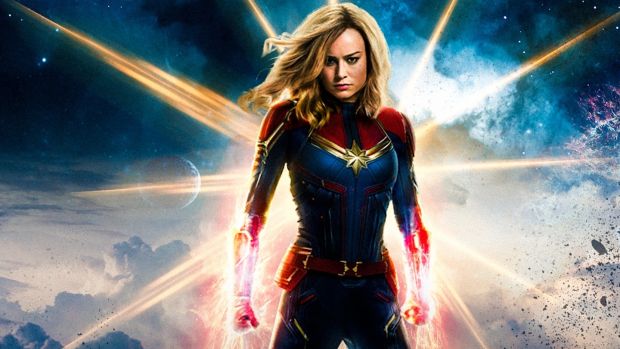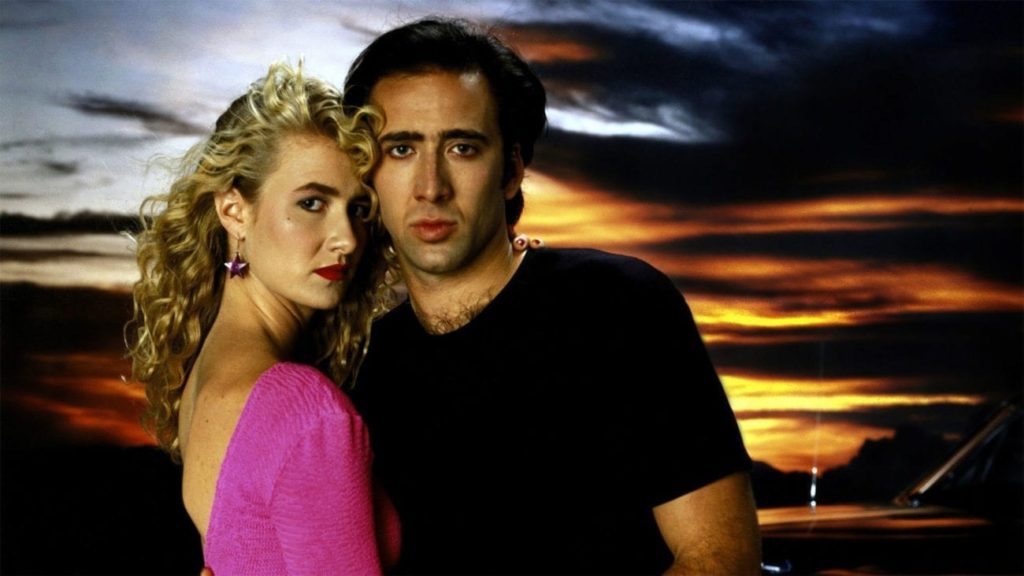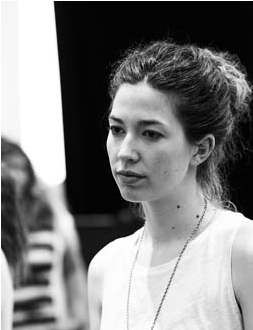This has been a year of progression in both the micro and macro. In the micro: I began making movies for the first time (after a decade directing only theatre). In the macro – from the kick-ass Killing Eve to Debra Granik’s beautifully subtle Leave No Trace; from an entirely new superhero in Captain Marvel to a very unique “Mother” character in Jordan Peele’s US – it’s been thrilling to witness a new range and complexity in female characters on our screens. As well as this, there’s been a glut of startlingly fresh films from our leading women directors. This year I’ve been shaken by Lynne Ramsey’s You Were Never Really Here, truly stirred to my core by Alice Rohrwacher’s Happy As Lazzaro and completely mesmerized by Annemarie Jacir’s WAJIB. It’s undoubtedly a good year to join the screen world as a female director, to feed off and learn from these giants.

And in the past few months I have also found myself glued to David Lynch’s Wild At Heart, listening avidly to Lynch’s Master Class online and dipping back into his biographies to find sustenance and inspiration when the creative well runs dry. Now, I’m in the business of questioning who we look to for artistic “truths” these days and, being a bit confused by my own impulses, I had to take a step back to question who I was personally turning to for guidance about my own artistic voice. Why Lynch? As far as Old White Men go, he certainly doesn’t appear to break the mould. In interviews he comes across as a wizened wizard who looks like he’s just stepped off a black and white movie set. His voice sounds like tuning into a long-lost radio frequency from the 1950s and the era that birthed him was one in which women were portrayed onscreen as either hysterically-patterned housewives, nubile (dead) muses or statuesque, femme-fatales. None of Lynch’s films necessarily challenge these problematic stereotypes and many times watching his work, I’ve found myself shocked at how easily I am lulled into accepting (and even enjoying) stories which portray such gender dynamics which superficialise women.

But…
But Lynch remains, along with those I’ve mentioned above, one of my true artistic compasses. What is it about Lynch and his work that, for me, still holds such magic, despite the problematic gender conservatism? Why do I see myself in this person who looks so much like the kind of “person” I believe we should be giving less attention to these days (and focussing instead on those who disrupt normative ways of seeing/looking/appearing)? What can we take from Lynch, as artists-who-happen-to-be-women, as we forge our own paths in the film world?
For me, it seemed to come down to three things:
1. David Lynch is not afraid or embarrassed to explore things we can’t see or prove or know. In his films characters have visions and visitations, they pass through portals and experience prophetic dreams. But, unlike many directors, his work doesn’t use the genre of ‘sci-fi’ to explain away the unknown. His films may be surreal, but they are firmly rooted in reality. In interviews he talks openly about faith and love and alternative realities. These are radical things, because they challenge the notion that “this is all there is”. They offer windows, doors, hatches and the opportunity to look behind the curtain and decide if we want to change what we find.
2. David Lynch is totally committed to trying to convey truths about what it feels like to be a human being, regardless of how long it takes or how strange the means or how vulnerable the endeavour. He might use a specific sound created through a broken machine, manipulated by himself alone. It might be the way a camera turns and bucks awkwardly to underline the strange feeling a character is having, or the excruciatingly slow pace of a scene, or an unexplained storyline that never truly connects back up. These truths are rarely to do with the material world and small egoistic wants and needs, instead they are other-worldly, dark, mysterious and profound. This kind of truth resonates with me, as a woman and as a human being.
3. It is never in doubt, for David Lynch, that being alive includes the necessity of art in all its forms, the necessity of artists in all their forms and the necessity to make art, at all costs, at all moments.
These are three things I believe in. They make me want to keep telling stories about an alternative reality to the one we are told is a “given”. They help me imagine an alternative future to the one we’re headed for, and to forge collaborations with the many diverse and progressive voices we need to help us build it. Lynch is by far not unique in delving into the intimacy and darkness of the true human condition with such clarity and flair. But for me he remains one of the most bizarre and truthful storytellers around. So for the time being, along with Ramsey, Roarwacher, Granik and Jacir, Lynch will continue to be a compass.
By Caitlin Mcleod

Caitlin McLeod is a theatre and film director, with credits from iconic venues such as the Almeida and Shakespeare’s Globe. She is also the founder of new-writing company The Coterie which develops multi-disciplinary performance projects with strong female narratives and characters. You can follow her on Twitter.
